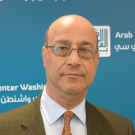Speakers
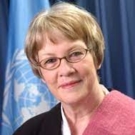
Karen Koning AbuZayd
Pro Bono Commissioner
Independent International Commission of Inquiry on the Syrian Arab Republic, United Nations Human Rights Council
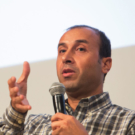
Mohammad Al-Ahmad
Assistant Teaching Professor
Georgetown University
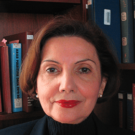
Mary-Jane Deeb
Chief of the African and Middle Eastern Division (ret.)
Library of Congress
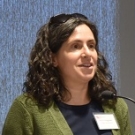
Daryl Grisgraber
Senior Advocate for the Middle East and North Africa
Refugees International
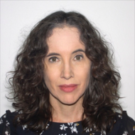
Jana Mason
Senior Advisor, External Relations and Government Affairs
UNHCR
Moderator
Event Summary
Washington, DC — April 17, 2018 — Arab Center Washington DC (ACW), a nonprofit, independent, and nonpartisan think tank that focuses on US policy and developments in the Arab region, hosted a panel on April 17, 2018 at the JW Marriott Hotel titled “Syrian Refugees: Caught Between Stale Policies and State Interests.” The event was organized and hosted in partnership with the Boston Consortium for Arab Region Studies (BCARS), an organization focused on improving the American public’s understanding of Arab cultures, contributions to humanity, and American interests related to the Middle East as a whole.
ACW Executive Director Khalil E. Jahshan provided some opening remarks about the ongoing Syria crisis, now in its eighth year. Karen Koning AbuZayd, Pro bono Commissioner of the Independent International Commission of Inquiry on the Syrian Arab Republic for the United Nations Human Rights Council (UNHCR), delivered the keynote address. BCARS’ Denis Sullivan moderated the discussion. Other panelists were Mohammad Al-Ahmad from Georgetown University, Mary-Jane Deeb from the Library of Congress, Daryl Grisgraber from Refugees International, Jana Mason from the UNHCR, and Imad Harb from ACW.
The speakers painted a bleak but fact-based picture of the conditions facing Syria’s nearly 12.5 million refugees and IDPs—a figure that is almost 55 percent of the Syrian population, Jahshan noted. Panelists agreed that the humanitarian crisis is not limited to just those who were forced to leave their towns and villages, but it also affects the roughly 11 million Syrians who have remained in their homes and are in need of humanitarian assistance.
Syrian refugees face serious challenges. Food, water, and basic services like medical assistance and electricity are difficult to secure. Returnees are threatened by security and safety concerns. Syrians who escaped to neighboring countries like Turkey (3.5 million registered refugees), Lebanon (close to 1 million), Jordan (over 600,000), and Egypt and North Africa (over 150,000), face difficulties educating their children, finding work, and pursuing higher education. Al-Ahmad noted that only a combined 36,000 of the over five million refugees in Turkey, Lebanon, and Jordan are enrolled in higher education institutions. Syrian refugees also face incredible difficulties getting employed so many work illegally without any benefits or protections.
The speakers agreed that a multi-faceted international approach is needed to alleviate the humanitarian crisis and prepare Syria for resettling the displaced populations. Failure to do so could result in regional and global instability. This approach would be two-pronged: providing services, education, and employment opportunities for both refugees and IDPs, and laying the ground work for their eventual return and repatriation.
The panelists suggested a partnership between international actors to incentivize host countries to issue work permits and offer more education opportunities. Deeb proposed that international players—from states to private companies—could invest in creating an “information hub” for gathering information on refugees and delivering services to them. All affirmed that a political resolution is essential. As Harb stated, the United States should be at the forefront of global efforts and called on the current administration to have a political vision toward the Syrian crisis.
Event Highlights
Event Photos

